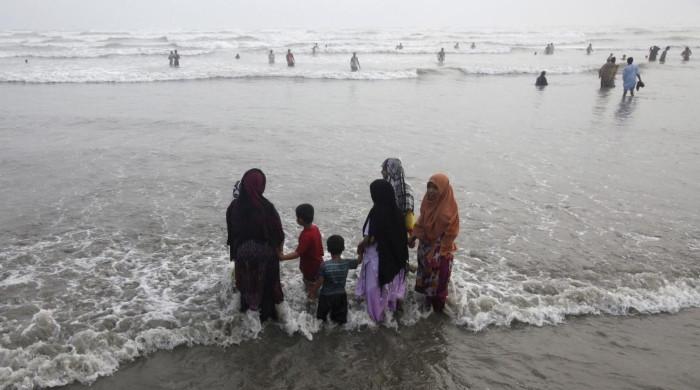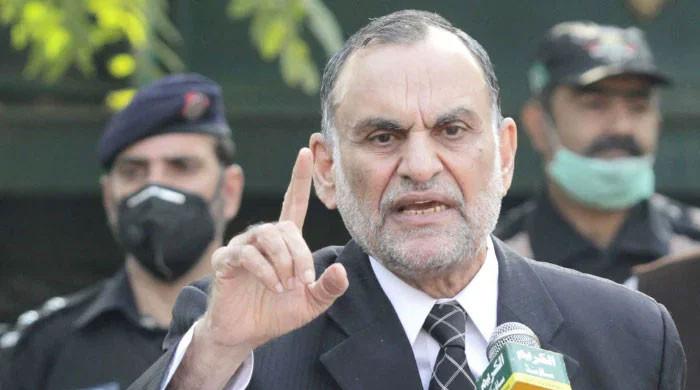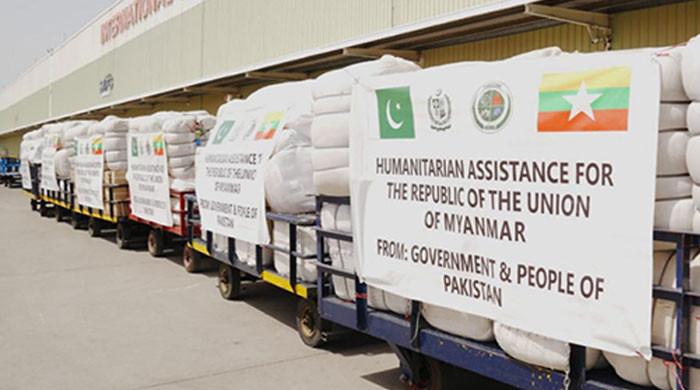Punjab declares health emergency in worst smog-hit Multan, Lahore
Senior Minister Marriyum Aurangzeb announces extension of schools' closure for another week in affected regions
November 15, 2024
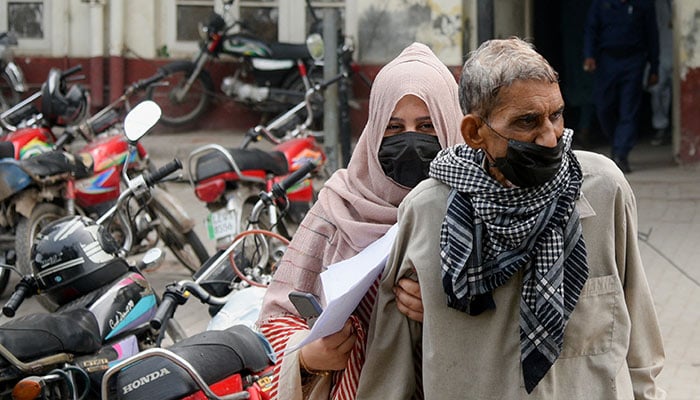
- Marriyum says colleges, universities will switch to online classes.
- Minister announces new operating hours for restaurants in two cities.
- Punjab continues to battle air pollution with arrival of winter season.
The worsening smog situation in Punjab has led the government to declare a health emergency in Lahore and Multan, the two worst-hit cities, as authorities continue efforts to curb air pollution and its impact on public health.
The provincial capital has maintained its position as the most polluted city in the world in terms of air pollution, while Multan has the worst air quality among Pakistani cities, as per Swiss group IQ Air.
Senior Minister for Information and Environment Protection Marriyum Aurangzeb on Friday announced a further extension of the orders for school closures in smog-hit areas across the province.
"The schools will remain closed for another week due to the hazardous air quality," she said while addressing a press conference.
The minister said that colleges and universities will switch to online classes to ensure the safety of students.
Lahore — a city of 14 million people stuffed with factories on the border with India — regularly ranks among the world's most polluted cities, but it has hit record levels this month, prompting authorities to take extraordinary measures to fight off smog.
As Punjab battles with air pollution with the arrival of winter season, the AQI of Punjab capital dropped as low as 732 this morning before improving to 669 by 1pm, according to IQAir, a Swiss air quality technology company.
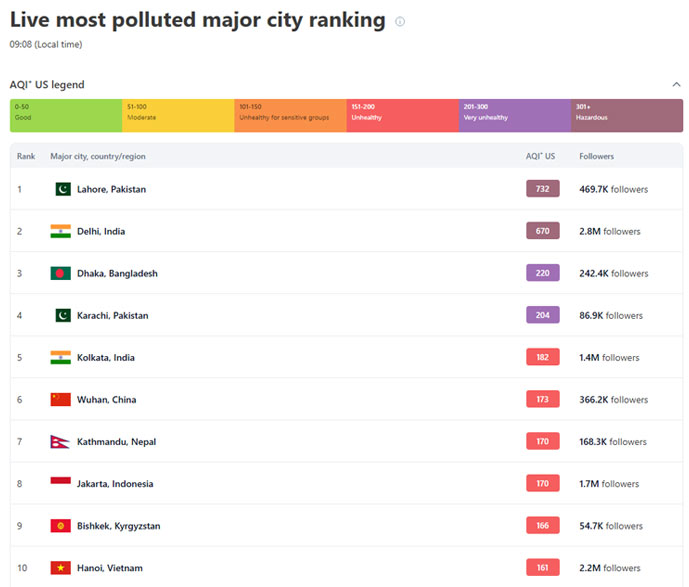
The prevailing smog situation has warranted strict measures, including school closures and shifting towards online classes and a ban on most outdoor activities till November 17, in eight districts engulfed by toxic air.
In addition to this, dining in restaurants, shops, markets and shopping malls had been directed to close by 8pm.
However, the persistent thick smog has prompted the extension of school closures and a declaration of health emergency.
Marriyum also announced new operating hours for the restaurants in Lahore and Multan, allowing them to stay open until 4pm and offer only takeaway service till 8pm.
"A full lockdown will be enforced in both cities on Friday, Saturday, and Sunday, as authorities continue to monitor the worsening smog situation," the minister stated, adding that the government will review data until Wednesday before making further decisions.
She further stated that the government is also imposing a ban on construction activities in the two cities from this Saturday until next Sunday to reduce further pollution.
LHC urges long-term smog control policy
Meanwhile, the Lahore High Court (LHC) has stressed the need for a long-term smog control policy, suggesting that the government should formulate a plan spanning at least 10 years.
Justice Shahid Karim presided over the hearing on petitions regarding smog mitigation, with Advocate General Punjab Khalid Ishaq appearing before the court.
During the proceedings, the court directed the Advocate General to discuss a comprehensive smog control policy with Punjab Chief Minister Maryam Nawaz upon his return, emphasising the necessity of a decade-long strategy.
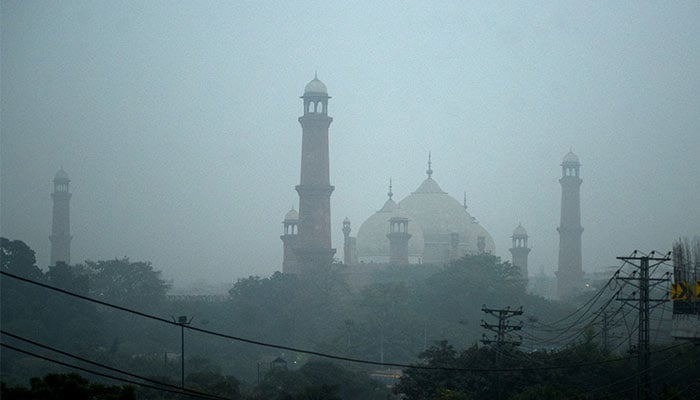
The advocate general informed the court that a budget has been allocated for introducing electric buses in Punjab, which are expected to operate by June next year.
Further updates from Khalid Ishaq included efforts to address flood situations, conserve rainwater, and tackle rising ground temperatures. He stated that work on urban forestry is underway, with a report on its progress to be submitted to the court by March.
The court advised the government to study Beijing's model for environmental improvement and provide its insights.
Praising the government's initiatives, the court recommended announcing a ban on establishing housing societies on agricultural land. It also proposed planting more water-conserving trees and making water treatment plants mandatory for 10-marla houses.
The court has requested implementation reports on smog control measures and adjourned the hearing until next week.
Smog affects nearly 2 million
The drastic deterioration of air quality in the smog-hit regions has caused an increase in health issues like eye and throat infections and respiratory diseases.
According to the Punjab Health Department, more than 1.9 million people sought medical attention in October due to smog-related health issues. The report revealed that individuals were primarily suffering from respiratory issues, asthma, heart diseases, and strokes.
In October alone, 119,533 people in Lahore were diagnosed with asthma, and 13,773 cases of heart disease were reported. Additionally, 5,184 stroke cases were recorded across Punjab.
The department also warned that the hazardous air quality could lead to further health complications if the situation does not improve soon.
Authorities have advised citizens to avoid stepping out of their homes unnecessarily and keep their doors and windows closed besides ensuring the use of face masks.
Several parts of South Asia are engulfed by a toxic haze each winter as cold air traps dust, emissions and smoke from farm fires.
Punjab has blamed its toxic air this year on pollution wafting in from India, where northern parts have also been battling hazardous air, and has said it will take the issue up with the neighbouring country through its foreign ministry.







